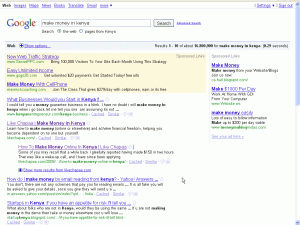
A recent study by HubSpot found out that businesses that actively maintain their blogs draw as much as 7 times more visitors to their websites than businesses which do not have blogs. What does this mean?
Does your business depend on getting many visitors to your website? Or, would it benefit your business if your website had more visitors? Yes? Then you need to have an active and well maintained blog for your business.
What makes a good business blog? It may surprise you, but the big accounting and consulting firm, PricewaterhouseCoopers once did some research on what makes a good corporate blog. Here are their published results. From reading their white paper, some of the main points, in my mind, are:
- Demonstrate expertise – Position an employee and/or the business as the industry thought leader.
- Build customer relationships – Develop personal, long-term relationships with customers; collect feedback, insights, suggestions, complaints and endorsements; and increase intimacy by giving the business a human voice.
- Enhance company credibility – Utilize a high-profile, press-monitored venue to directly address and respond to issues related to the company. During times of crisis, explicitly address needs and concerns of stakeholders. In other words, use the blog to paint the best picture possible for your business.
- Expand company visibility – Link the blog to related Web sites via RSS to generate interest from new parties, including the media and competitors’ customers. Basically, use the blog to increase the number of people who know about you, and can find you.
- Increase collaboration – Create a workspace in which project teams can interact.
- Promote knowledge management – Provide employees with information and resources in an easy-to-navigate format.
- Strengthen recruitment – Generate interest in the business from potential recruits by demonstrating candor and credibility in the blog.
- Test progressive ideas – Gauge public interest to out-of-the-box thinking by posting ideas and monitoring responses.
- Heighten search engine rankings – Raise rank and profile of business by building a high number of links to the blog.
Apart from those pointers, the white paper goes further and lists some additional tips:
- Remember that blog readers are not passive consumers; they are actively seeking a ‘scoop’ or insight from your blog.
- Do not just blog for blogging’s sake. Make sure that what you write about is interesting and engaging.
- Authenticity is critical to creating a successful blog; readers know when content is primarily focused on marketing the firm/company.
- Updating the blog on a regular basis is key to engaging readers and driving return traffic.
- Be sure to incorporate RSS feeds. RSS feeds allow readers to receive blog updates in real-time.
So, why exactly does your business not blog?
 For the readers that don’t know, Crystal is the one and only “3CB”, a popular blogger and prolific writer. She is the brains behind
For the readers that don’t know, Crystal is the one and only “3CB”, a popular blogger and prolific writer. She is the brains behind 
